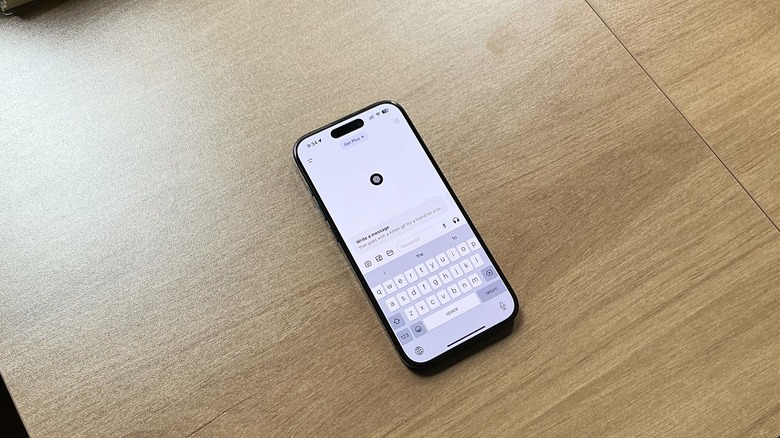The Fake Story Of How ChatGPT Saved Someone's Life
UPDATE: Soon after the ChatGPT story went viral, the Redditor who posted it confirmed it was all fake. They instructed the chatbot to write that type of story for Reddit and posted proof in a separate Reddit thread. This goes to show the dangers of genAI for the internet, further reminding me that I have to question everything I see online now that content can be easily faked.
That doesn't change my belief that ChatGPT could someday become a life-saving AI agent. When it does happen, I won't trust the story unless there's solid evidence to prove it.
That said, our original story about this life-saving event that ChatGPT made up follows after the redditor's confirmation that it was all fake.
Modern technology can be increasingly helpful for one's well-being. It's usually wearable devices like the Apple Watch that users praise for having saved their lives. The iPhone's crash detection feature and satellite communication feature have also proved to be life-savers in an emergency.
Artificial intelligence could be next, with one ChatGPT user having just detailed his life-saving experience with the chatbot. After going through a series of symptoms with the AI, the person was directed to the emergency room by the chatbot.
As it turns out, the diagnosis that ChatGPT came up with was confirmed by doctors. ChatGPT caught a heart attack early enough to save the person's life, as doctors were able to treat the patient before the symptoms worsened.
Redditor sinebiryan shared the story on the ChatGPT subreddit where it quickly went viral. "ChatGPT saved my life, and I'm still freaking out about it," they said.
The incident occurred a few weeks ago while the Redditor was working late one night.
"Around 2 AM, I realized my chest felt kind of tight and I was feeling off. I shrugged it off as usual work stress and lack of sleep – maybe too much caffeine, y'know? I went back to my work but kept feeling weird," sinebiryan wrote. "For some reason, I decided to ask ChatGPT about my symptoms. I wasn't even thinking it was serious, just curious. I typed in a bunch of stuff: 'What could be causing chest tightness, dizziness, and nausea?' expecting some bland response about needing to get more sleep or cut back on the coffee."
ChatGPT apparently took it "pretty seriously" and asked questions about other symptoms, "such as shortness of breath, sweating, etc." The Redditor realized they had those, too, and ChatGPT gave its diagnosis: "These symptoms could be serious and may indicate a cardiac event or other medical emergency. Please consider seeking medical attention immediately."
The Redditor was hesitant to take the advice seriously, but they went to the emergency room nonetheless. That's where doctors told them that they were indeed experiencing the early stages of a heart attack. The doctors said, "If I had waited even an hour or so longer, it could have been a whole different story."
"I'm still kind of stunned," the Redditor concluded. "ChatGPT doesn't diagnose, obviously, but the fact that it pushed me to take my symptoms seriously when I might have brushed them off... I mean, it really did save my life. Thanks to AI, I get to share this story instead of my family having to tell it for me."
That's certainly a great outcome, and you can read the full story below. As a longtime ChatGPT user who has plenty of faith in what AI might help me achieve on my computers, I'm also intrigued by this particular type of assistance from AI. Combine more advanced genAI tech with health data from wearables and contextual information from a smartphone, and the AI might catch all sorts of health risks a lot sooner.
However, I will warn you against relying on ChatGPT to diagnose medical conditions. Yes, the chatbot will answer, just like Google provides results when you look up symptoms online. But the AI shouldn't be used for definitive diagnosis. Instead, get a professional opinion, like sinebiryan did.
